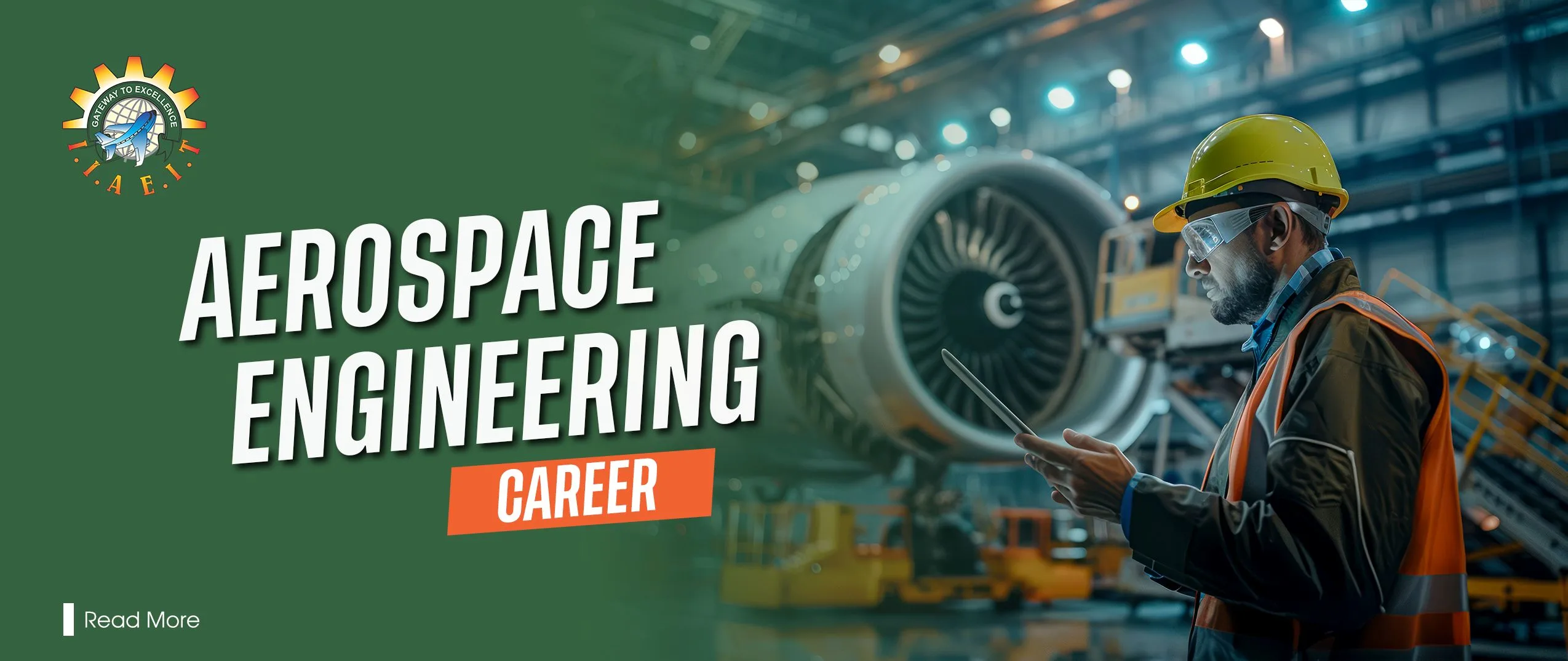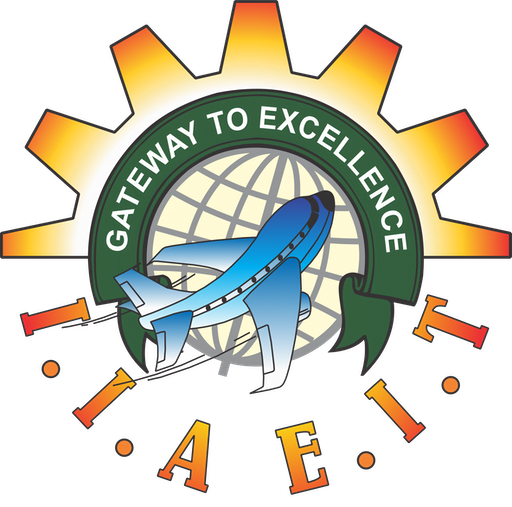Aerospace Engineering Career
Aerospace engineering is a dynamic field that involves the design, development, and testing of aircraft, spacecraft, and related systems. It combines principles from mechanical engineering, electronics, and materials science to create vehicles that operate in the atmosphere and beyond. This discipline is divided into aeronautical engineering, which focuses on aircraft, and astronautical engineering, which deals with spacecraft.
What makes aerospace engineering a high-potential career choice? The industry is experiencing rapid growth due to advancements in space exploration, commercial aviation, defence technologies, and drones. With global air traffic expected to double in the next decade and private space companies like SpaceX and Blue Origin leading innovations, job opportunities are expanding.
Industries hire aerospace engineers across various sectors, including commercial aviation (e.g., Boeing, Airbus), defence (e.g., Lockheed Martin, DRDO in India), space agencies (NASA, ISRO in India), and emerging sectors such as drone manufacturing and private space firms. In India, aerospace engineers are in high demand due to the government’s push in organisations like ISRO, HAL, DRDO, and NAL, as well as emerging defence-tech firms.
What Does an Aerospace Engineer Do?
Key roles and responsibilities
Aerospace engineers are responsible for:
- Conceptualising and designing aerospace vehicles
- Performing simulations, troubleshooting, and feasibility studies
- Integrating propulsion systems and avionics
- Conducting testing to ensure safety and compliance
Types of aerospace engineers (aeronautical vs astronautical)
Aerospace engineering comprises two types of engineers, namely:
- Aeronautical engineers – focusing on aerodynamics, structures, and propulsion for planes, helicopters, and drones. They work on aircraft (commercial aviation), like fighter jets (e.g., HAL’s Tejas)
- Astronautical engineers – focusing on space missions, tackling challenges like orbital mechanics. They work on spacecraft, satellites, and rockets (e.g., ISRO’s PSLV) and space missions,
Many roles at DRDO or NAL blend both, especially in hybrid projects such as reusable launch vehicles.
Day-to-day tasks in aerospace careers
Aerospace engineers typically utilise CAD tools such as CATIA, MATLAB, and ANSYS to design, conduct simulations, and perform wind tunnel tests. They may also:
- Analyse flight data
- Test prototypes
- Review blueprints and technical reports
- Collaborate with cross-functional teams on projects
Career Path in Aerospace Engineering
Education requirements
To enter the field, a bachelor’s degree, such as a B.Tech in Aerospace Engineering or a related field (e.g., mechanical, avionics), is essential. With progression for higher studies, an M.Tech degree and later a PhD open higher-level roles in research, defence, and space technology. Specialisations can include propulsion, avionics, space systems or even more profound expertise in areas like hypersonics. At IIAEIT Pune, students can pursue both B.Tech and M.Tech degrees in Aerospace Engineering, which provides hands-on training aligned with industry needs.
Certifications & licenses to boost career prospects
Certifications, such as the Professional Engineer (PE) license in the US or its equivalent in other countries, enhance credibility. In India, Certifications like the GATE qualification are crucial for entry into PSUs (e.g., HAL, BEL). Memberships with the Aeronautical Society of India or ISO certifications in quality management are valuable. Software-specific certs, such as Autodesk Certified Professional in CAD, software certifications in CATIA, or ANSYS, can also stand out. For regulatory roles at DGCA, certifications in airworthiness or quality management are beneficial.
Internship and early career opportunities
Internships at companies like Boeing, HAL, NAL, or ISRO are crucial for practical experience. Early careers often start as graduate engineer trainees (GETs) at PSUs or junior roles in private firms like Tata Advanced Systems. Programs like IIAEIT Pune facilitate internships through industry connections, enabling students to work on real-world projects, such as UAV design.
Jobs Directly Related to an Aerospace Engineering Degree
Propulsion engineers focus on engines and fuel systems, innovating to achieve better thrust and increased sustainability. Avionics engineers manage electronic systems for navigation and communication, integrating technology with aviation.
| Job Roles | Responsibility | Work Opportunity |
| Aircraft Design Engineer | Creating blueprints for new planes using aerodynamics principles | Designing airframes at HAL’s Aircraft Research and Design Centre |
| Aerospace Systems Engineer | Integrating components like engines and controls for optimal performance | Integrating systems for DRDO’s missile projects |
| Flight Test Engineer | Evaluating prototypes in real conditions, ensuring safety and efficiency | Testing aircraft like Tejas at ADA or HAL |
| Propulsion Engineer | Innovating in engines and fuel systems for better thrust and sustainability | Developing engines at HAL’s Engine Division or ISRO |
| Avionics Engineer | Blending tech with aviation, handling electronic systems for navigation and communication | Working on radar and navigation systems at BEL or HAL’s MCSRDC |
Jobs Where an Aerospace Degree is Useful
The skills learned in aerospace engineering are highly versatile and open doors to other industries. E.g.,
- Automotive Engineering – Aerodynamics and fuel efficiency design
- Mechanical Engineering – Machinery, robotics, and industrial applications
- Defence Technology – Missiles, UAVs, cyber defence
- Robotics & AI – Autonomous drones, AI-driven simulations
Salary Expectations for Aerospace Engineers
Aerospace Engineer Salary in India
| Experience | Salary |
| Fresher | ₹3-5 LPA |
| Average | ₹8-10 LPA |
| Experienced Professional | ₹20+ LPA |
Aerospace Engineer Global Salaries
| Country | Fresher | Average | Experienced |
| USA | $70,000 | $110,000 | $150,000 |
| UK | £39,000 | £60,000 | £90,000 |
| Germany | €45,000 | €75,000 | €110,000 |
| UAE | $70,000 | $90,000 | $120,000 |
Factors influencing salary (skills, location, industry)
Factors such as advanced skills in avionics, AI, CFD, or propulsion, along with the choice of location, significantly influence earnings. Locations like Silicon Valley, Pune, or Bangalore offer higher pay due to demand.
Skills Needed for a Successful Aerospace Engineering Career
Keeping technical skills at the core, Aerospace engineers must master both technical and soft skills.
- Technical: CAD (CATIA, SolidWorks), simulation (ANSYS), programming (MATLAB, Python)
- Problem-solving & Analytical Thinking
- Project Management & Teamwork
- Communication: bridging engineers, scientists, and stakeholders
Scope and Future of Aerospace Engineering
The future of aerospace engineering is expansive. The global market for the aerospace industry is projected to reach $46 billion in 2025 and $110 billion by 2035, as space exploration continues to accelerate. India’s Gaganyaan Mission and private companies like SpaceX and Blue Origin are shaping the next era of spaceflight. Emerging areas, such as autonomous drones, AI-driven simulations, hypersonic travel, and sustainable aviation (including biofuels and hydrogen engines), are expected to create millions of jobs worldwide.
Aerospace Engineering in India
India is positioning itself as a global aerospace hub, with organisations like ISRO, HAL, and DRDO leading defence and space missions. Pune, in particular, has emerged as a centre for aerospace and defence education, thanks to its industrial ecosystem and strong academic presence.
Founded in 2001, IIAEIT Pune has established itself as a pioneer in aerospace and avionics education. The institute offers programs such as B.Tech, M.Tech, and a Dual-Degree Aerospace Program (combining B.Tech and M.Tech), where students receive hands-on training in state-of-the-art laboratories. Clubs such as Aeromodelling, Rocketry, and avionics provide students with opportunities to innovate beyond the classroom.
The institute’s Training & Placement Cell connects graduates to careers in aerospace, defence, and private space firms. Alumni are now working at Paras Defence & Space Technologies, Godrej Aerospace, and Tata Advanced Systems. With scholarships available, IIAEIT is a leading choice for aspiring aerospace engineers in India.
How to Start Your Career in Aerospace Engineering
To begin a career in aerospace engineering, it is essential to establish a strong foundation in physics and mathematics. Pursue a B.Tech in aerospace or aeronautical engineering, and consider an M.Tech for advanced roles. Build your portfolio through internships and projects such as UAV or satellite design. Networking through conferences, competitions, and professional bodies, such as the Aeronautical Society of India, is highly valuable. Finally, apply strategically to entry-level roles at firms like ISRO, HAL, Tata Aerospace, Boeing, and Airbus to enter the industry.
Conclusion – Is Aerospace Engineering the Right Career for You?
Aerospace engineering offers vast opportunities in innovation and global impact. Consider your passion for technology, willingness for lifelong learning, and interest in high-stakes projects before diving in.
Aerospace engineering offers immense opportunities, from contributing to national space missions to innovating the future of global air travel. It is a career path that combines prestige with strong earning potential. If you are passionate about aviation, space, or defence, and are excited about working on technologies that shape the future, this field can be the perfect choice.
FAQs – People Also Ask
Q 1. What is the scope of aerospace engineering in India and abroad?
A. In India, organisations such as ISRO, HAL, and DRDO provide opportunities, while abroad, NASA, Boeing, and SpaceX offer global career opportunities.
Q 2. Is aerospace engineering a good career choice for the future?
A. Yes. With rapid growth in AI, drones, and space exploration, aerospace engineers are in high demand worldwide.
Q 3. Which companies hire aerospace engineers?
A. Top recruiters include Boeing, Airbus, Lockheed Martin, SpaceX, ISRO, HAL, DRDO, and Tata Aerospace.
Q 4. What skills are required to be an aerospace engineer?
A. Technical (CAD, simulations), analytical, problem-solving, teamwork.
Q 5. What is the average starting salary for aerospace engineers?
A. In India, freshers earn ₹3–5 LPA, while experienced professionals earn ₹10–20 LPA. Globally, salaries range from $70,000 to $150,000.
Q 6. Can aerospace engineers work in the automobile industry?
A. Yes. Skills in aerodynamics, materials, and propulsion transfer directly to automotive design and R&D.
Q 7. How long does it take to become an aerospace engineer?
A. It typically takes 4 years to complete a B.Tech degree, with an additional 1–2 years required for an M.Tech.; entry-level roles often begin with the bachelor’s degree itself.


